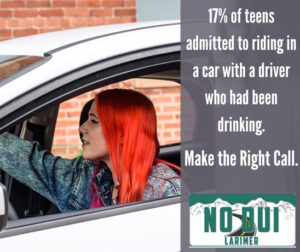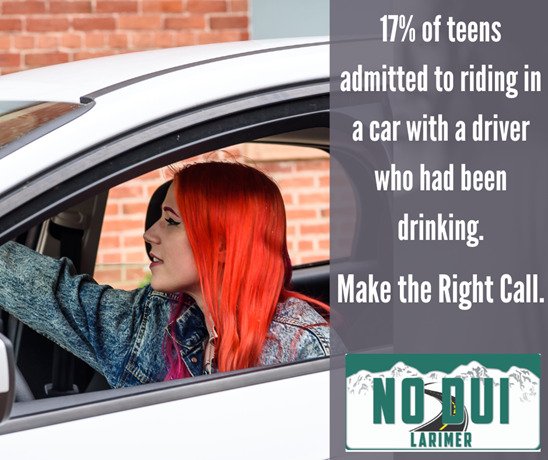Embarking on the exciting journey of college life is a significant milestone for students and a period of transition for parents. Among the myriad of changes that come with this transition, the issue of alcohol and drugs looms large. It’s crucial for both students and parents to approach this transition with awareness, understanding, and a commitment to safety.
The freedom and newfound independence that come with college life can bring about temptations and risky behaviors. It’s imperative for students to be equipped with the knowledge and tools to make informed decisions about alcohol and drug consumption, while parents play a pivotal role in supporting and guiding their children through this transformative period.
Our aim is to empower families to foster a safe and enriching college experience for everyone involved.

5 TIPS FOR PARENTS TO PREPARE TEENS FOR COLLEGE
Talk often
As with any parent/child discussion about risky behaviors, talking about it early and often is key. Talk to your teen about drinking and drugs and the risks associated with their use. A 2013 study by The Pennsylvania State University revealed that pre-college parental discussion reduced students’ high-risk drinking behaviors. For ideas to start the conversation about drinking and drugs with your child, check out our blog Children and Alcohol: When and How to Start Talking About It. It is never too late to start a discussion.
Your teen should know there is more than alcohol involved: Cannabis (marijuana), party drugs, “study aids,” and even some prescription drugs can alter behavior and cause impairment, increasing the risk of injury, assault, or even death when used irresponsibly. See: How High is Too High to Drive? If your child has already engaged in dangerous drug or drinking behaviors, now is the time to get to the root of the problem – not after they’ve moved away. Stay in-tune with your young adult so you can detect any mental health struggles.
Set an example
Demonstrate what you want your teen to emulate. Never drive impaired – after a few drinks, after consuming cannabis, or while under the influence of any hazardous prescription drugs. If you go out and drink more than you’d anticipated, leave your car and call for a sober ride home. Show your teen how to responsibly consume alcohol and legal drugs.
Set up and pay for a rideshare account
In the United States, 1,825 young people ages 18–24 are killed each year due to alcohol-related injuries, including drunk driving. Help your student avoid the temptation to drive drunk or ride with a drunk driver for convenience or to save money by setting up an account with Uber, Lyft, or a local rideshare service. Let your teen know if they are ever in doubt of their own – or a friend’s – ability to drive safely, they can charge a ride to you. (For guidance on how to handle a friend who is impaired, see our 8 Tips to Handle Someone Who Has Had Too Much.)
Set up an appointment with a counselor
If you see signs of a substance abuse problem in your teen, or they share these struggles with you, you can help by setting up an appointment with an on-campus counselor. Most large college campuses have many resources for students struggling with substance use, and your child is not alone.
Make rules and expectations clear
Prepare your student for the alcohol and drug abuse they may encounter on college campuses, but make it clear you do not condone underage drinking or drug and alcohol abuse. Establish clear rules and consequences for breaking those rules, and stick to them. Take advantage of opportunities to tell your teen all the things you love about them – things you don’t want them to lose because of drugs or alcohol.

5 TIPS FOR NEW COLLEGE STUDENTS TO PARTY SAFE
Always have a plan to get home
It’s easier to have a plan to get home ahead of time before you head out, while you have plenty of time, your judgment is not impaired, and you have Internet/cell service. When you go with a plan, you’re less likely to be affected by peer pressure to drive impaired or ride with someone who is, and you are less likely to find yourself in a dangerous situation with no exit plan.
Choose a designated driver you trust, schedule an Uber or Lyft, or take advantage of rideshares operated by your university. Help your friends plan ahead too, and never ride with someone who has been drinking or using drugs.
Eat and drink often
Eat and drink water before you head out to mitigate the negative effects of alcohol and help prevent dehydration. Consuming some calories throughout the night ensures you will have the energy to get yourself safely home when the night is over and helps you think clearly.
Watch your drink
Make sure no one has the opportunity to “spike” (contaminate) your drink with date rape drugs, many of which are colorless, odorless, and tasteless and can leave you incapacitated.
- Pour your own drink or open your own can/bottle; don’t accept one from someone else
- If you have trouble saying no when someone offers you a drink, arrive with your own
- Never leave your drink unattended
- Don’t leave your drink with someone you don’t know, even if they seem trustworthy; they may not be as careful with your drink as you would be, leaving it vulnerable

Come prepared
You never know how the night might end up, so bring some essentials to avoid being stranded or stuck in an uncomfortable situation. You need to be able to contact someone and pay for goods and services in case of an emergency. The basics include:
- A charged cell phone
- Your ID
- Your keys
- Cash or a credit card, stored securely
Know your limits
The first time you attend a big party is not the time to figure out how your body reacts to alcohol or drugs. It’s essential that you know how many drinks are too many for you, so you can avoid putting yourself in an unsafe situation. Have your first drink at home with people you trust. Alcohol and marijuana affect everyone differently, partly based on factors such as height, weight, gender assigned at birth, and interplay with any other substances they’ve consumed.
A good rule of thumb for parties is the “one drink per hour rule,” since most people metabolize alcohol at a rate of approximately one drink every 60 minutes. You can also try one of these Tools for Monitoring Your Own Intoxication, including a pocket-sized breathalyzer to read your BAC (Blood Alcohol Content).
No DUI Larimer encourages all of our readers: Educate yourself about how alcohol and other substances affect you and how you can avoid driving impaired – take charge of your future. Make the Right Call.
Follow No DUI Larimer on Facebook, Instagram, and Pinterest for more ways you can combat impaired driving in our community.


![Partners [Logo Reversed]](https://poweredbypartners.org/wp-content/uploads/2020/06/partners-horiz-no-tag-sm-rgb-color-purple.png)